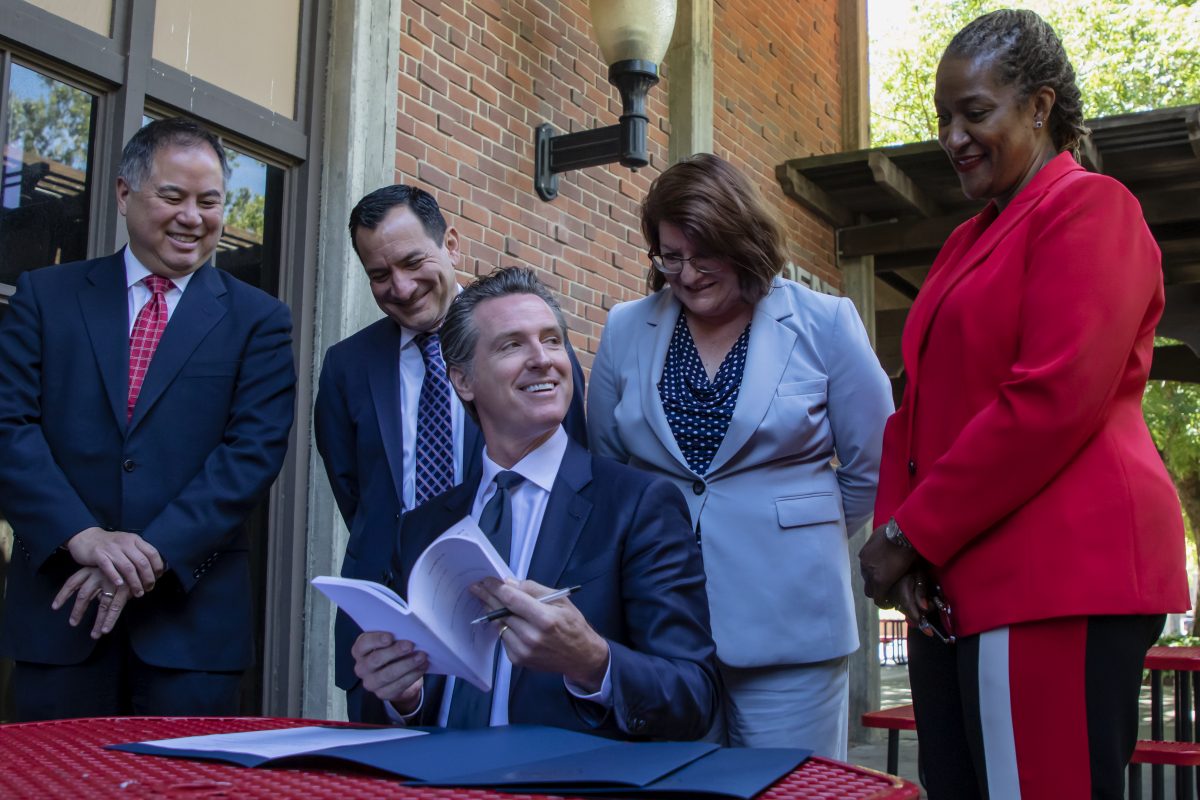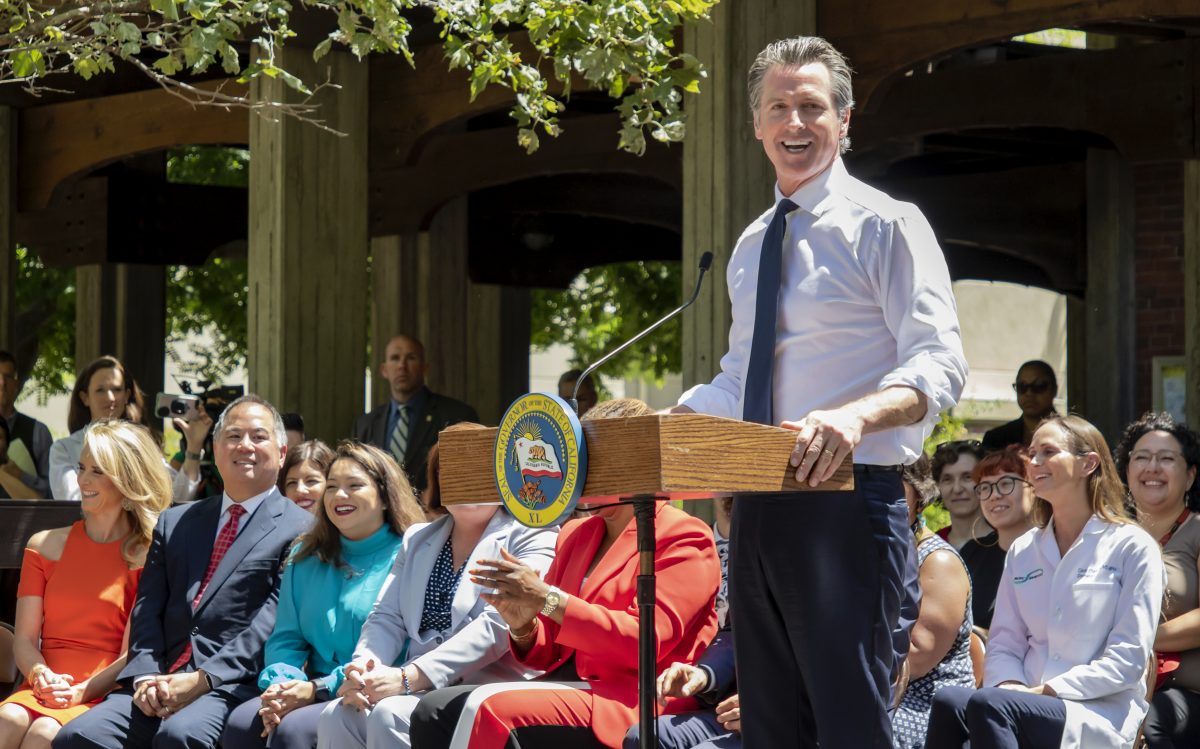by Rose Vega| Editor-in-chief| rvega.express@gmail.com
by Danielle McKinney| Editor-in-chief| dmckinney@gmail.com
Nearly 200 faculty, staff, students and children gathered in the City College quad July 1 to hear Gov. Gavin Newsom announce that state residents will be able to attend any California community college for free for two years as part of the 2019-2020 Affordability Budget he just signed into law.
Minutes before speakers took the stage, Newsom signed into law SB 76, SB 77 and SB 93. SB 77, is the bill granting free tuition to community college students for a second year. Californians can already attend the first year of community college for free, after the passage in 2017 of AB19, the California College Promise program, which allocated $46 million to the state’s 114 community colleges.
“Higher education is not just CSU and UC,” said Newsom. “The first door on higher education is community college, and we are proud to have a second year of community college free.”
Newsom said that his budget for the 2019-2020 fiscal year provides $2.4 million to City College to cover student tuition.
City College Student Senate President Kimberly Ramos made the opening remarks and introduced Anthony Rendon, speaker of the Assembly. Rendon spoke to overcoming limitations faced by government officials who seek funding to aid issues, such as health care for immigrant students, programs for homelessness and the cost of higher education.
“I’ve been told we can’t help college students who need basics like food and shelter to go along with their academic needs. Whether it’s social services or K-12 education or work protection, we have often heard the same refrain of ‘we can’t do that,’” said Rendon. “This year we are proud to turn that around. This year we can say ‘we can do all of that.’”
According to Rendon, Newsom’s budget will expand healthcare access, increase housing production, invest in education and increase the Cal-EITC Working Families Tax Credit.
President Pro Tempore of the California State Senate Toni Atkins expressed gratitude to everyone who worked to bring Newsom’s budget to fruition.
“We have agreed to a budget that is bold and responsible, and I am extremely proud of the final product,” said Atkins. “Californians can look at this budget and be reassured that we have our eyes on the future—both in the goals we should strive for and the challenges we must prepare for.”
Atkins said that Newsom’s budget gives the people of California what they deserve—a budget that makes investments in their future.

“We came across with a budget that reflects the collective wisdom, not just of us, but each and every one of you,” said Newsom, adding that California values shine through in the Affordability Budget.
“We’ve got a lot of challenging issues in this state, and we have a lot of work to do, nothing no more challenging than what’s up on this board addressing the issue of affordability,” Newsom said gesturing towards a poster board outline of his Affordability Budget.
According to Newsom, California is growing faster than the United States and as a state, it is not just about growth but about inclusion.
“We cannot live in the richest and the poorest state and live in a just society,” said Newsom. “We have got to mind that gap.”
Newsom said that he is not focusing on redistribution but rather on predistribution by seizing the opportunity gap, the readiness gap and the achievement gap. He believes that achievement starts at the beginning of life, before people enter the education system.
The Affordability Budget invests in education for Californians, paving the way to universal preschool, recruiting and retaining qualified educators and facilitating tuition freezes at the UC and CSU levels, according to Newsom.
Newsom talked about the California earned income tax credit, explaining how the budget more than doubles the investment in the Cal-EITC to $1 billion, which will increase the number of participating households from 2 million to 3 million.
According to Newsom, the Affordability Budget preserves health coverage for Californians and includes a series of proposals that reduce health care costs and increases access for families. Newsom said that he believes in universal health care.
“California became the first state in the country today to provide subsidies for families earning as much as $150,000. They’re gonna get an average on a monthly basis $120 to help them with their Medicare costs,” said Newsom.
Newsom recognized the homelessness epidemic and spoke to the importance of mental health services in the fight against homelessness. His budget includes a $1 billion investment to provide homelessness emergency aid, increase mental health support and fund rapid rehousing and basic needs initiatives for students in the University of California, California State University and the California Community College systems.
Newsom acknowledged that there is still more work to be done, but that this budget is a solid first step to managing the affordability crisis. He said the state needs to start focusing on income and wealth disparities, help support the middle class, and address the issues of housing and homelessness in California.
“We are well on our way to a more enlightened future,” said Newsom.


































